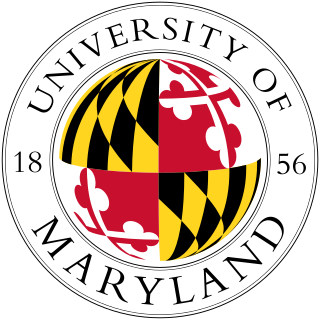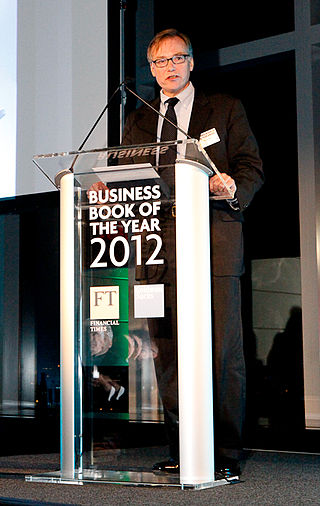Related Research Articles

The Booker Prize, formerly the Booker Prize for Fiction (1969–2001) and the Man Booker Prize (2002–2019), is a prestigious literary award conferred each year for the best single work of sustained fiction written in the English language, which was published in the United Kingdom or Ireland. The winner of the Booker Prize receives £50,000, as well as international publicity that usually leads to a significant sales boost. When the prize was created, only novels written by Commonwealth, Irish, and South African citizens were eligible to receive the prize; in 2014, eligibility was widened to any English-language novel—a change that proved controversial.

The Giller Prize is a literary award given to a Canadian author of a novel or short story collection published in English the previous year, after an annual juried competition between publishers who submit entries. The prize was established in 1994 by Toronto businessman Jack Rabinovitch in honour of his late wife Doris Giller, a former literary editor at the Toronto Star, and is awarded in November of each year along with a cash reward with the winner being presented by the previous year's winning author.
The Carnegie Medal for Writing, established in 1936 as the Carnegie Medal, is an annual British literary award for English-language books for children or young adults. It is conferred upon the author by the Chartered Institute of Library and Information Professionals (CILIP), who in 2016 called it "the UK's oldest and most prestigious book award for children's writing".

The University of Surrey is a public research university in Guildford, Surrey, England. The university received its royal charter in 1966, along with a number of other institutions following recommendations in the Robbins Report. The institution was previously known as Battersea College of Technology and was located in Battersea Park, London. Its roots however, go back to Battersea Polytechnic Institute, founded in 1891 to provide further and higher education in London, including its poorer inhabitants.

The Queen's University of Belfast, commonly known as Queen's University Belfast, is a public research university in Belfast, Northern Ireland, United Kingdom. The university received its charter in 1845 as part of the Queen's University of Ireland and opened four years later, together with University of Galway and University College Cork.

The Royal Institute of British Architects Stirling Prize is a British prize for excellence in architecture. It is named after the architect James Stirling, organised and awarded annually by the Royal Institute of British Architects (RIBA). The Stirling Prize is presented to "the architects of the building that has made the greatest contribution to the evolution of architecture in the past year". The architects must be RIBA members. Until 2014, the building could have been anywhere in the European Union, but since 2015 entries have had to be in the United Kingdom. In the past, the award included a £20,000 prize, but it currently carries no prize money.

The Baillie Gifford Prize for Non-Fiction, formerly the Samuel Johnson Prize, is an annual British book prize for the best non-fiction writing in the English language. It was founded in 1999 following the demise of the NCR Book Award. With its motto "All the best stories are true", the prize covers current affairs, history, politics, science, sport, travel, biography, autobiography and the arts. The competition is open to authors of any nationality whose work is published in the UK in English. The longlist, shortlist and winner is chosen by a panel of independent judges, which changes every year. Formerly named after English author and lexicographer Samuel Johnson, the award was renamed in 2015 after Baillie Gifford, an investment management firm and the primary sponsor. Since 2016, the annual dinner and awards ceremony has been sponsored by the Blavatnik Family Foundation.
The James Tait Black Memorial Prizes are literary prizes awarded for literature written in the English language. They, along with the Hawthornden Prize, are Britain's oldest literary awards. Based at the University of Edinburgh in Scotland, United Kingdom, the prizes were founded in 1919 by Janet Coats Black in memory of her late husband, James Tait Black, a partner in the publishing house of A & C Black Ltd. Prizes are awarded in three categories: Fiction, Biography and Drama.

The Museum of the Year Award, formerly known as the Gulbenkian Prize and the Art Fund Prize, is an annual prize awarded to a museum or gallery in the United Kingdom for a "track record of imagination, innovation and excellence". The award of £100,000 is Britain's biggest single art prize, and the largest single museum arts prize in the world. The prize and is presented to a museum or gallery, large or small, anywhere in the UK, whose entry, in the opinion of the judges, best demonstrates a track record of imagination, innovation and excellence through work mainly undertaken during the previous calendar year.
The Orwell Prize is a British prize for political writing. The Prize is awarded by The Orwell Foundation, an independent charity governed by a board of trustees. Four prizes are awarded each year: one each for a fiction and non-fiction book on politics, one for journalism and one for "Exposing Britain's Social Evils" ; between 2009 and 2012, a fifth prize was awarded for blogging. In each case, the winner is the short-listed entry which comes closest to George Orwell's own ambition to "make political writing into an art".
The Victorian Premier's Prize for Poetry, formerly known as the C. J. Dennis Prize for Poetry, is a prize category in the annual Victorian Premier's Literary Award. As of 2011 it has an enumeration of A$25,000. The winner of this category prize vies with 4 other category winners for overall Victorian Prize for Literature valued at an additional A$100,000.
The Sunday Times CNA Literary Awards are awarded annually to South African writers by the South African weekly newspaper the Sunday Times. They comprise the Sunday Times CNA Literary Award for Non-fiction and the Sunday Times CNA Literary Award for Fiction, and are awarded for full-length non-fiction works and novels, respectively. Both winners receive R100 000. Ivan Vladislavic is the only person to have won both the fiction and the non-fiction award.
The Aurealis Awards are presented annually by the Australia-based Chimaera Publications and WASFF to published works to "recognise the achievements of Australian science fiction, fantasy, horror writers". To qualify, a work must have been first published by an Australian citizen or permanent resident between 1 January and 31 December of the corresponding year; the presentation ceremony is held the following year. It has grown from a small function of around 20 people to a two-day event attended by over 200 people.
Scotland's National Book Awards, formerly known as the Saltire Society Literary Awards, are made annually by the Saltire Society. First awarded in 1937, they are awarded for books by Scottish authors or about Scotland, and are awarded in several categories.

The University of Maryland, College Park is a public land-grant research university in College Park, Maryland, United States. Founded in 1856, UMD is the flagship institution of the University System of Maryland.
The Carbuncle Cup is an architecture prize, given annually, originally by the magazine Building Design, and since 2024 by The Fence, to "the ugliest building in the United Kingdom completed in the last 12 months". It was intended to be a humorous response to the prestigious Stirling Prize, given by the Royal Institute of British Architects.

Financial Times Business Book of the Year Award is an annual award given to the best business book of the year as determined by the Financial Times. It aims to find the book that has "the most compelling and enjoyable insight into modern business issues". The award was established in 2005 and is worth £30,000. Beginning in 2010, five short-listed authors each receive £10,000, previously it was £5,000.
References
- 1 2 "THE Awards 2009's front-runners are poised for October's revelations". Times Higher Education. 10 September 2009.
- ↑ "THE Awards 2024". Times Higher Education.
- ↑ "Times Higher Education Awards 2023: shortlist announced". Times Higher Education.
- ↑ "THE Awards 2022". Times Higher Education.
- ↑ "THE Awards 2021: shortlist announced". Times Higher Education. 9 September 2021.
- ↑ "THE Awards 2020: shortlist announced". Times Higher Education. 10 September 2020.
- ↑ "THE Awards 2019: shortlist announced". Times Higher Education. 5 September 2019.
- ↑ "THE Awards 2018: shortlist announced". Times Higher Education. 6 September 2018.
- ↑ "THE Awards 2017: shortlist announced". Times Higher Education. 7 September 2017.
- ↑ "Times Higher Education Awards 2016 shortlist announced". Times Higher Education. 1 September 2016.
- ↑ "Times Higher Education Awards 2015 shortlist announced". Times Higher Education. 3 September 2015.
- ↑ "THE Awards 2014: shortlist announced". Times Higher Education. 4 September 2014.
- ↑ "THE Awards 2013: shortlist announced". Times Higher Education. 5 September 2013.
- ↑ "THE Awards 2012: shortlist announced". Times Higher Education. 6 September 2012.
- ↑ "THE Awards 2011: shortlist announced". Times Higher Education. 1 September 2011.
- ↑ "THE Awards 2010: shortlist announced". Times Higher Education. 23 September 2010.
- ↑ "THE Awards 2008: winners announced". Times Higher Education. 22 October 2008.
- ↑ "THE Awards 2007: winners announced". Times Higher Education. 23 October 2007.
- ↑ "UMD Exchange: University of Nottingham (United Kingdom)". globalmaryland.umd.edu. University of Maryland.
- ↑ "University of the Year". University of Manchester. Archived from the original on 10 April 2007. Retrieved 25 April 2007.